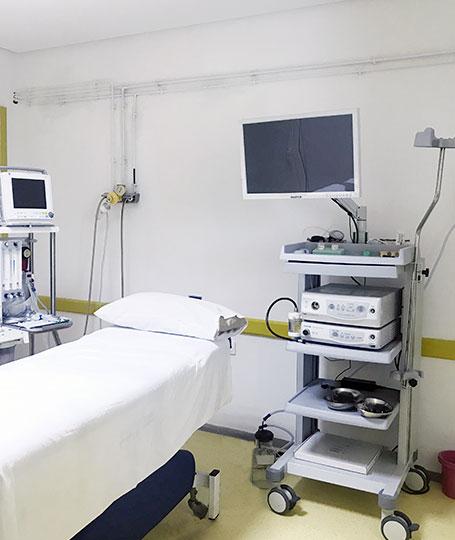Digestive explorations Tunisia, the Center Clinic
Digestive explorations play an important role in digestive pathology, both in the diagnosis and treatment of problems related to the digestive system. Within this framework, several examinations can be carried out to explore properly.
These examinations are able to facilitate the diagnosis and treatment of digestive diseases.
The Center Clinic takes care of any exploration related to the digestive system. Our establishment is equipped with state-of-the-art equipment.

Oeso-gastro-duodenal fibroscopy or the Tunisian digestive fibroscopy is an examination that allows to visualize the inside of the upper digestive tract (esophagus, stomach, duodenum). For this purpose, a flexible tube called fibroscope or endoscope is introduced into the patient's digestive tract.
Gastroscopy Tunisia is a digestive endoscopy examination which consists in visualizing the inner wall of the stomach. It is currently the reference examination to explore the esophagus, stomach and duodenum.
The aim of this examination is to highlight possible lesions and to take biopsies (removal of a fragment of tissue to study it under the microscope).
Colonoscopy is an examination that is used to visualize the inside of the colon (sigmoid, transverse, ascending and descending colon), the rectum and part of the small intestine. It is done using an endoscope (a tube with optical fibres) connected to a screen: coloscope.
The coloscope can also be used to insert small surgical tools.
Colonoscopy can, among other things, in prominence:
- Infection or inflammation
- Polyps (benign tumors)
- Diverticula (small hernias of the mucous membrane of the colon)
- A cancerous tumor (more rarely)
Rectoscopy is an endoscopic examination to explore the rectum. It is indicated in the presence of blood in the stool or suspicion of rectal pathology. Carried out using a rigid endoscope equipped with fiber optics, rectoscopy allows the study of the rectum, the anal canal and the distal region of the sigmoid colon in order to detect the possible presence of a suspected abnormality during a rectal examination.
